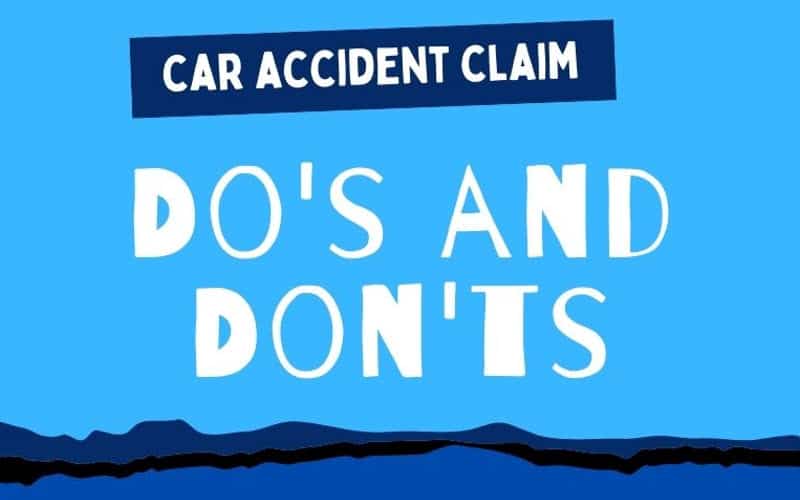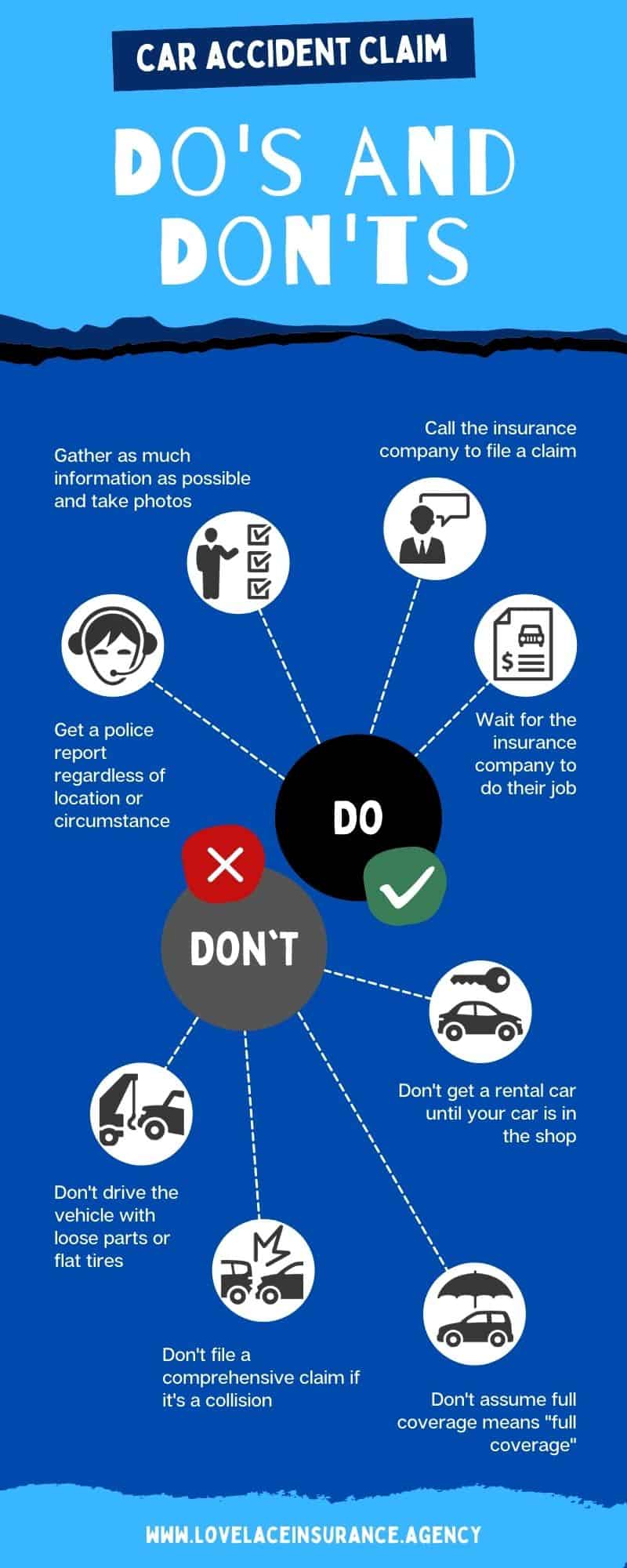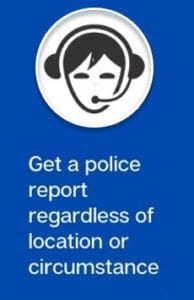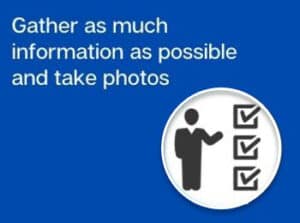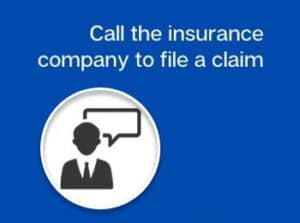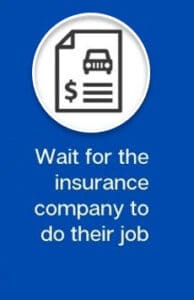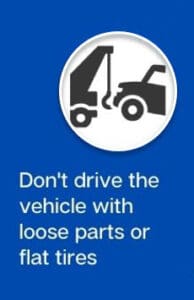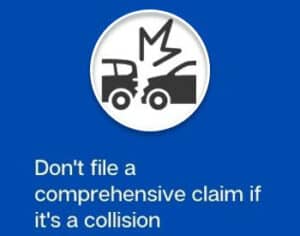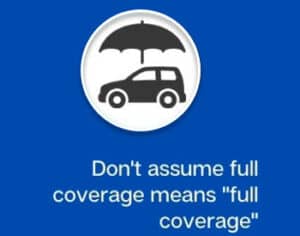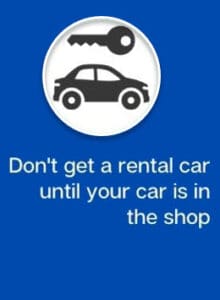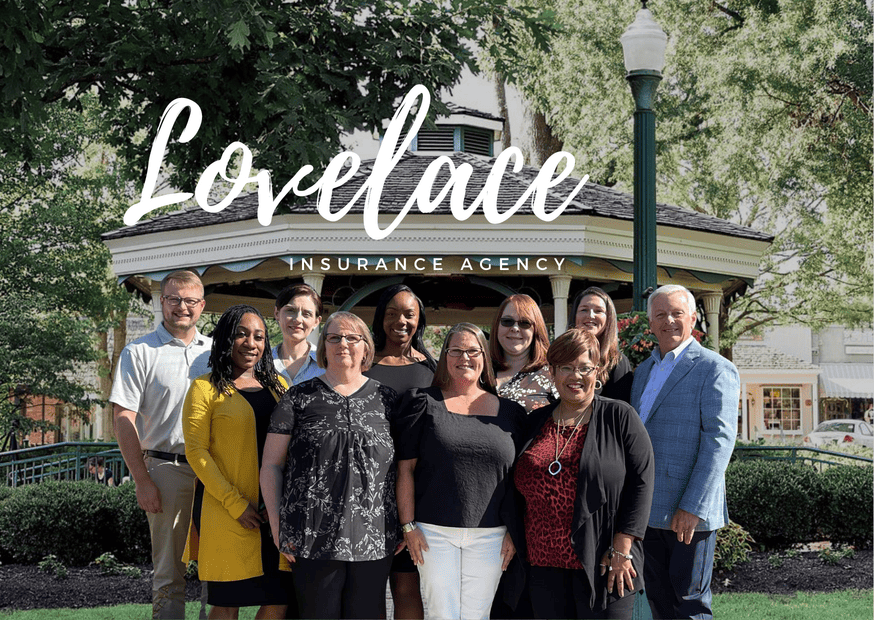Getting into a car accident is never a fun experience, regardless of whether the accident is minor or involves injuries. Filing a car accident claim can add additional stress to an already stressful situation. And the whole purpose of your car insurance policy is to protect you, your family, and your car from damage and loss.
We are here to help you navigate this sometimes confusing process. There are eight dos and don’ts you need to know when filing your car accident claim.
Get a Police Report, Regardless of Location or Circumstance
Traffic collisions are rising due to advances in technology and many more vehicles on the road. Accidents don’t always happen on surface streets. They can occur on private property such as commercial parking lots.
A minor fender bender can cost thousands, and a police report can help the insurance company determine how to proceed and prove who’s at fault.
After filing the report, you don’t need the physical police report to file a car accident claim. Filing the report over the phone is the first step; you can always get the physical police report later.
If the vehicle is not driveable and needs towing, get the towing company’s receipt, address, and phone number.
Gather as Much Information as Possible and Take Photos
Unless there are injuries, swap as much information with the other party as possible. Take photos of the damaged areas on all vehicles. Then call the police department and request a police report if the accident occurred on private property.
Remember, if there are no injuries, a police officer will not be dispatched; only when there are threats of violence or injury are the police sent. Surface streets, highways, and bridges will certainly get police attention and will dispatch fire and ambulance services.
Call the Insurance Company to File Your Claim
If your insurance company has a phone app dedicated to filing claims, the process can begin there. If no app is available, calling the insurance company will get your car accident claim started.
The insurance company will gather some basic information such as where the accident took place, the time of day, what happened, was there anybody hurt, is the car driveable. If the vehicle was towed away, where did it go
Always try and get as much information as possible at the scene. Because once you’ve left the accident scene, remembering some aspects of the accident can be challenging.
After gathering the information, the insurance company will give you a car accident claim number, be sure and write it down for safekeeping.
Wait for the Insurance Company to do Their Job
Never assume who’s at fault in an accident. It’s the insurance company’s responsibility to determine fault.
Time frames may vary when the insurance company calls you, but a recorded statement from both parties to the accident is required.
When the call comes, it’s best to state the facts as they happened to the best of your knowledge and recollection. Refer to your notes taken at the accident.
If the vehicle gets towed, the insurance company determines the repairability of the vehicle or if it’s a total loss. The insurance company’s claim department will call you with their decision.
Not every accident, condition, or circumstance is the same. If there are no injuries, we encourage you to call our agency and allow us to walk you through the car accident claim process and how to best proceed with filing your claim.
Don’t Drive the Vehicle with Loose Parts or Flat Tires
You’d be surprised how a loose bumper falling off as you drive down the road can cause additional damage the insurance company may not pay for. Don’t assume; always opt on the side of caution; especially when filing a car accident claim. Towing is the only option if the vehicle has hanging parts. And if you’re not sure, give us a call and let us help you. It’s why we’re here!
Don’t File a Comprehensive Claim If It’s a Collision Claim
Let’s first define the difference between comprehensive and collision.
Comprehensive covers damage caused by fire, theft, animals, damage to windshields, and vandalism; collision is striking other objects like another car, trees, parking curbs, poles, mailboxes, garage doors, etc.
So striking an animal, not an accident. Hitting a parked or moving car, curb, pole or tree is. Get the picture.
When a car accident claim is filed as comprehensive and later determined to be an at fault accident insurance claim by the insurance company, a new claim must be filed, which means more time is required.
And time is not your friend, especially when your damaged car sits at the repair shop and the rental car has to be returned before you get your repaired car back.
Bottom line, if you are unsure how to file your claim, please call the agency.
Don’t Assume Full Coverage Means “Full Coverage”
Full coverage car insurance can mean different things to different people. For example, having the state-required comprehensive and collision coverage doesn’t mean your policy has rental car allowance or towing services.
Reviewing your insurance policy coverages regularly helps determine what coverages and limits are included with your policy. Not having enough coverage could mean you are responsible for all expenses and services above and beyond the policy limits.
For example, suppose your collision limits are $25,000/$50,000, the state minimums, and the accident caused $75,000 in damages, including the car and injuries. The insurance company determines the accident is your fault; you are now responsible for the difference, like $25,000, ouch!
“But what happens if an underinsured or non-insured driver hits me?”
Great question! The same applies but with a twist. In the case of an underinsured driver, your insurance policy kicks in after the at-fault accident policy pays out.
If the driver has no insurance, your policy kicks in up to the limits. For example, $75,000 in damages plus injuries means $50,000 in coverage applied, leaving $25,000 of unpaid expenses. At this point, it’s your responsibility to pay those expenses. The insurance company has met its obligation up to the policy’s limits and your car accident claim will be settled.
Then it becomes a legal juggernaut not many are prepared to deal with, trying to collect from the party that caused the accident. Not fun, right? Call our agency to discuss the current limits of your policy. Better to protect against loss than get left holding the bag and losing assets. After all, it’s why we have insurance. Right?
Don’t Get a Rental Car Until Your Car Is In The Shop
If the car is not driveable and towed to the repair shop, the insurance company will set up a rental car on your behalf.
However, suppose the car is driveable, and you decide to take it to a repair shop before the insurance company approves the repairs.
In that case, you might be responsible for paying for the rental, the repair bill, basically everything. It’s best to wait for the insurance approval after filing a car accident claim before taking it to a repair shop or renting a car.
Additional Car Accident Claim Tips
Be mindful of your rental car limits. For example, say you have a $30 per day rental allowance, and you rent a $50 per day vehicle. This can add up quickly, $20 a day difference multiplied by the number of days your car was in the shop, say 30, that’s an extra $600 coming out of your pocket!
Wait for the insurance company to approve the repair estimate and determine who’s at fault in the car accident claim before taking the vehicle in for repairs. Be sure and bring your estimate with you to the car repair place.
If you finance your car, getting Gap insurance can help cover the loss between what the insurance company has determined the value of the totaled vehicle they are willing to pay and what you owe the finance company.
Ask about a Gap policy the next time you purchase a car at the dealership. These policies are very affordable and can add immeasurable value to help protect your investment.
Rod Lovelace – Insurance Agency
What Happens After a Car Accident Insurance Claim Settlement?
The car is totaled, the insurance company has settled the claim, and you have a new car. But you still have the totaled vehicle on your insurance policy.
Please don’t assume the insurance company automatically removes the vehicle from your policy after the car accident claim has been settled; it doesn’t happen that way.
There are times when removing a car can’t be done right away due to missing paperwork or back-office procedures.
Call your agency and request the removal of the totaled car. They will contact the insurance company on your behalf to determine if the car can be removed from your policy and the date for the removal.
Finish any paperwork that needs finishing. Once the insurance company has determined the car accident claim has been settled on both the fault and no-fault sides, the agent then creates an endorsement to remove the totaled vehicle.
Once the endorsement is processed, the insurance company will remove the car the day after the accident occurred, so no additional premiums accrue. And depending on the time frames and insurance premiums paid, you may even get some credited back to you.
Conclusion
Car accidents aren’t fun, and filing a car accident claim isn’t either. Don’t go it alone! We are here to help you navigate this process, understand your car policy, and ensure your complete satisfaction. Don’t be shy, give us a call (901) 203-0043, you’ll be glad you did!

